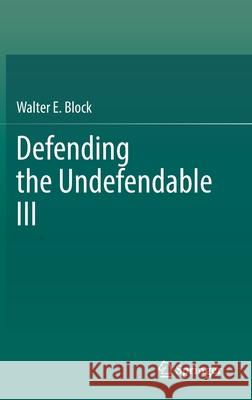Defending the Undefendable III » książka
topmenu
Defending the Undefendable III
ISBN-13: 9789811639562 / Angielski / Twarda / 2021 / 273 str.
Kategorie:
Kategorie BISAC:
Wydawca:
Springer
Język:
Angielski
ISBN-13:
9789811639562
Rok wydania:
2021
Wydanie:
2021
Ilość stron:
273
Waga:
0.58 kg
Wymiary:
23.39 x 15.6 x 1.75
Oprawa:
Twarda
Wolumenów:
01
Dodatkowe informacje:
Wydanie ilustrowane











